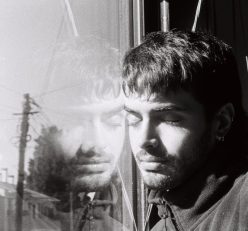
The Nine Muses, directed by John Akomfrah, is a 90-minute experimental documentary with traces of essay film that resumes the departure of many African-Caribbean people to the United Kingdom in the 60s and 70s. The film is composed in remembrance of Homer’s Odyssey. It is divided into nine chapters, each dedicated to one of the nine Muses, the daughters of Mnemosyne, the personification of memory in Greek mythology. Akomfrah uses an amalgam of visual sources, either recorded on location or from archives, and it is sonically defying as it comprises texturised noise sounds, with archive sounds and recorded music from Paul Robeson, Arvo Pärt, Leontyne Price, Handel, and his collaborator from BAFC (Black Audio Film Collective) Trevor Mathison. It also has an ongoing speech with quotes from Nietzsche, Dante, Shakespeare, Milton, Joyce, Emily Dickinson, Cummings, and Samuel Beckett. It is a difficult film to swallow, not because of its imagery but from the constant content conflict in the movie. Each part makes expositions through metaphors and riddles that force the viewer to comprehend the migrants’ reflex immediately.
It wasn’t straightforward for me to follow its pace, realising that the spectator needs to be prepared and energised to be as quick as the film goes. Its audience must be literate and knowledgeable, which is not very inclusive. Bringing complexity, in my opinion, is a misuse of the format because it is overloading the eyes who sees it with too much information. Despite the excellent montage, the images weren’t coherent to the overall aesthetics. A 1 minute long shot with a Dutch angle and a sepia filter with a terrible composition? However, this shot is inserted in the middle of really well-composed images of the Alaskan landscape and the man standing contemplating them. I’m expecting more avantgardism for a 2010 experimental film. Maybe I expect too much from artists as Alexandre O’Neill once said in Periclitam os grilos. I believe in a more modernised definition of cinema, similar to Ricciotto Canudo, where apart from being a compilation of all the other arts, it is also its balance, and I am afraid The Nine Muses isn’t. I feel that it has powerful research and critique behind it, but the concept is not everything, and in this case, it lacks artist consistency and coherence.
